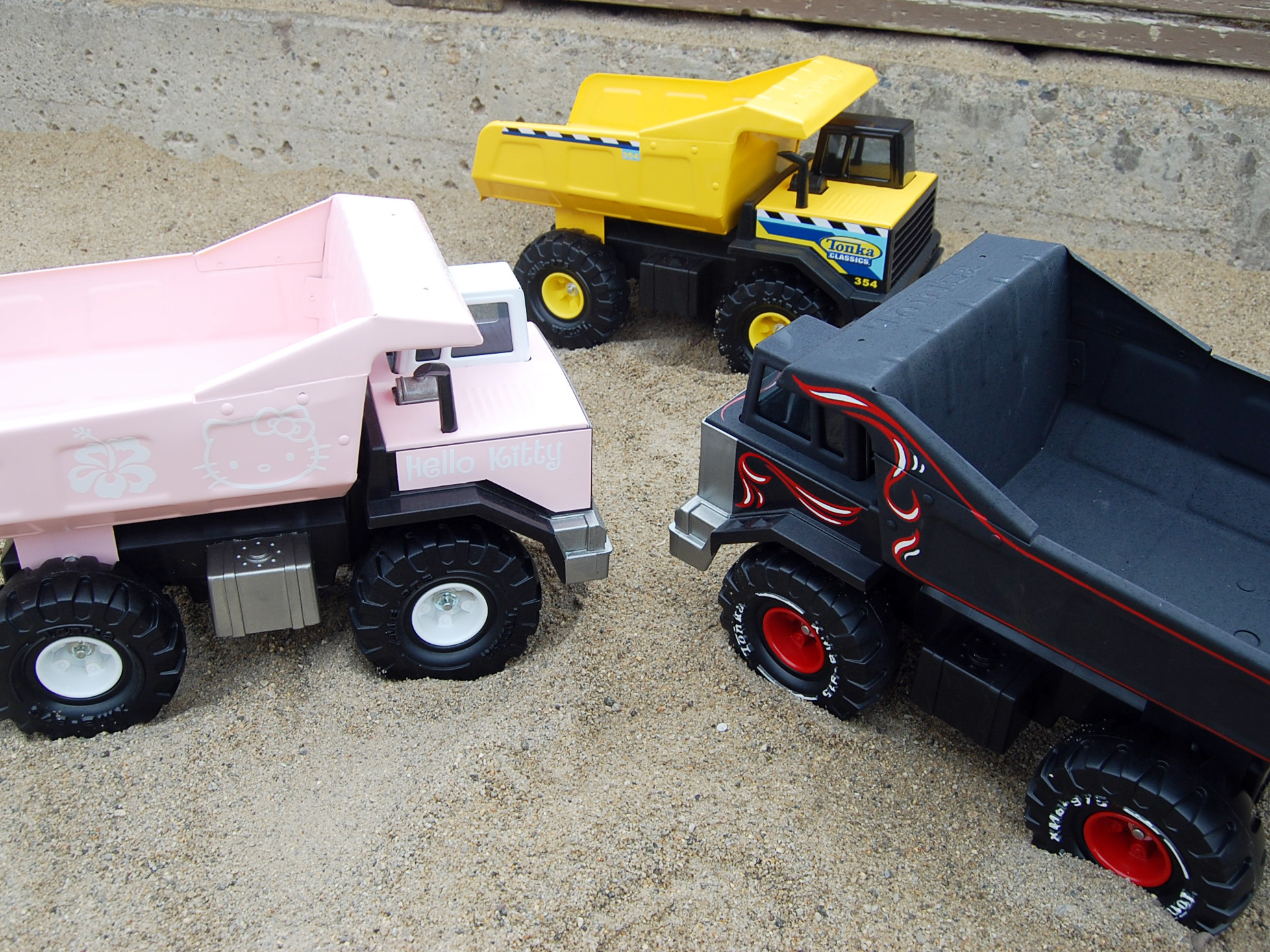Tonka dump trucks are famously rugged, and much of their strength comes from the simplicity of their design. All you need to take one apart is a flathead screwdriver and an electric drill.
Remove the wheels. Use a long, thin, flathead screwdriver to gently but firmly pry 1 chrome cap off the end of each axle. Start by wedging the blade under the cap, then roll it side-to-side to loosen the cap. Try to avoid bending or mutilating the caps, because you’ll need them later for reassembly. Save the caps and axles in a safe place, so you don’t lose them.
Remove the tires from the wheels. There’s no glue holding the yellow plastic wheels to the black plastic tires — it’s just a tight fit. You may be able to push the wheels out with your bare hands. If not, just place the tire facedown over the center of a roll of masking tape, and tap the axle hole lightly with a hammer. The wheel should loosen and pop right out.


